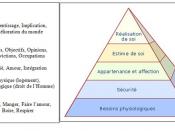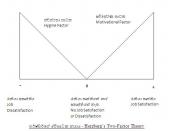Abstract
Job enrichment has evolved immensely since its beginnings as part of Frederick Herzberg's Two-Factor Theory. It is now a catch-all for various managerial tools. Some of these tools of job enrichment are fads that will fade away, but some of them are useful and proven to yield positive results. The techniques for applying job enrichment however are reliant on a thorough examination of both the job and the employee if the manager wants to achieve improved satisfaction and increased productivity. This paper examines the evolution of job enrichment, some of the critical areas for successful implementation and common stumbling blocks of job enrichment in the workplace. It conclude with a brief look at the Hackman Oldham theory of implementing job enrichment
Contemporary Job Enrichment as a Managerial Tool in the 21st Century: How does it work?
In the 1950's Frederick Herzberg, following the work of A. H.
Maslow's hierarchy of needs, established his Two-Factor Theory (also known as motivation-hygiene theory) on how to motivate workers. Herzberg assumed that most workers had satisfied Maslow's lower-order needs. He then focused on the higher-order needs as the path to a satisfied employee. These higher order needs included such things as "Belonging and social needs, Esteem and status needs, and Self-actualization and fulfillment needs" Newstrom and Davis (2002, p. 107).
Herzberg concluded from his research that there were two separate and different, but not opposite, factors that made workers either satisfied or dissatisfied. The first one is hygiene factors. They are related to job context and include such things as relationships with supervisors, peers, and subordinates, company policy and administration, job security, working conditions and pay. The second factor is called motivation. Motivators are related to job content and include achievement, responsibility, personal recognition and growth, and advancement. It is important...


